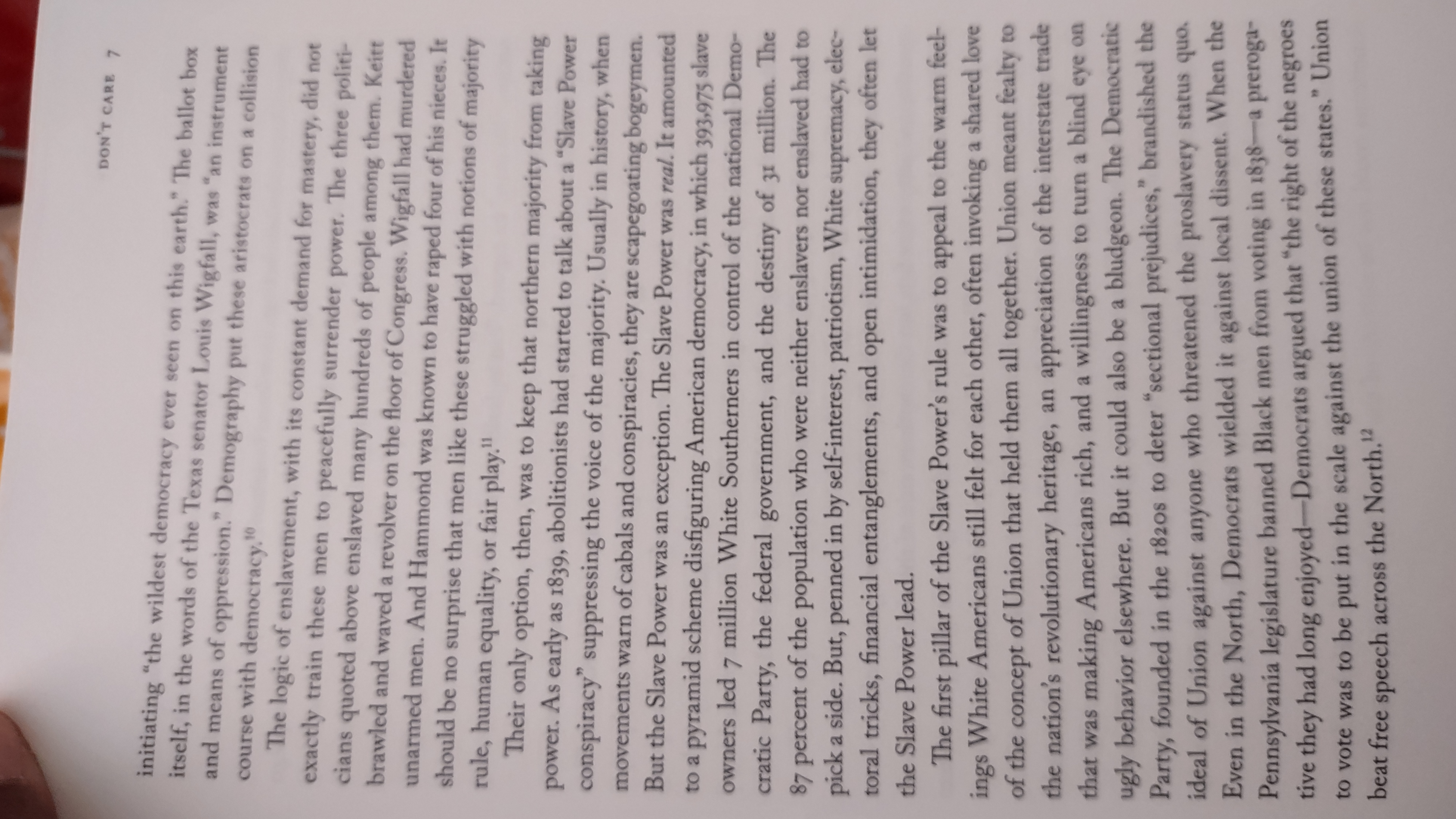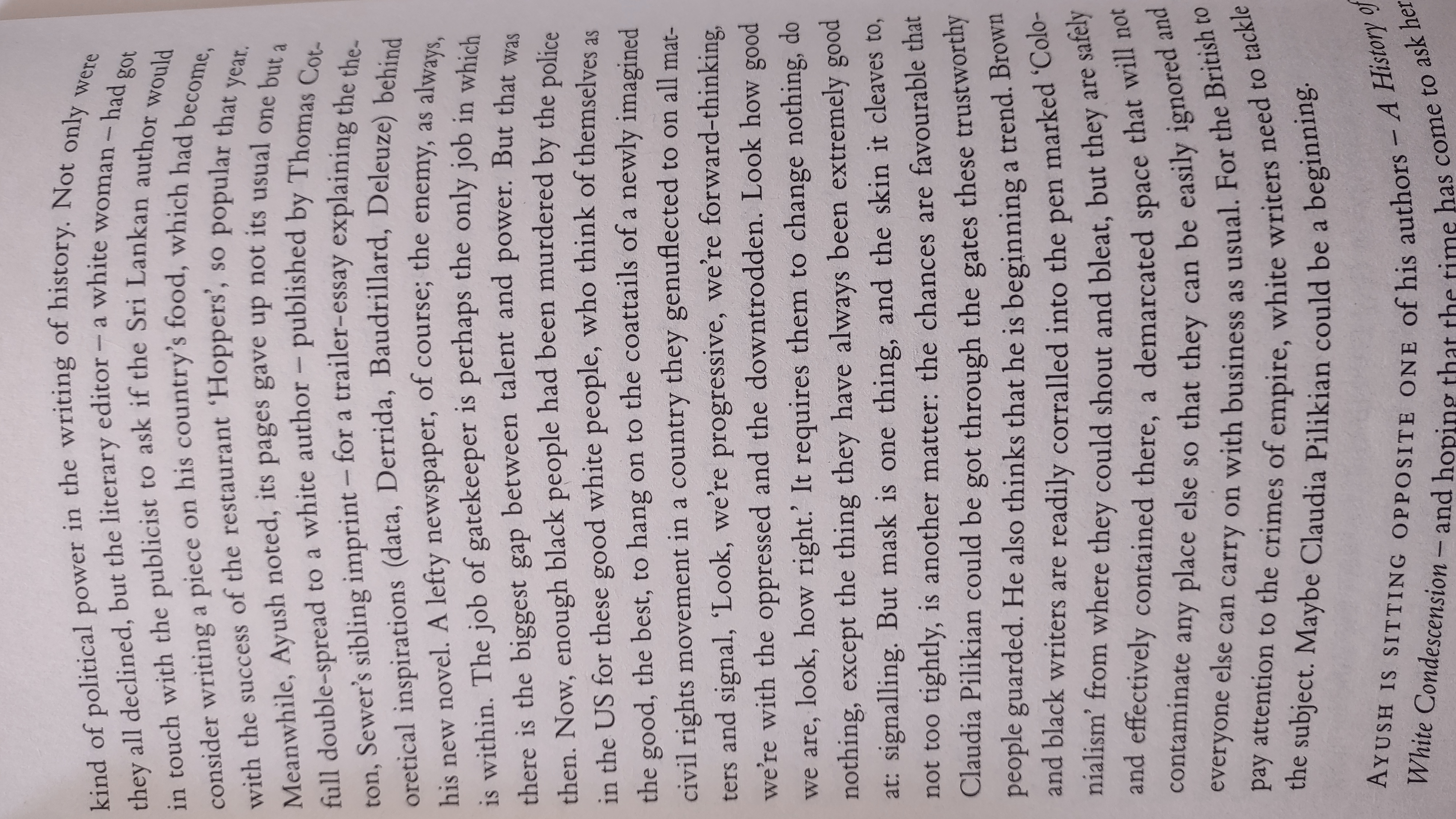"Democracy's Dilemma: Examining Slave Power and Politics"
Notes on the Excerpt

-
Democracy vs. Enslavement
The text discusses the inherent conflict between the ideals of democracy and the realities of enslavement. This contradiction shows how societal structures can resist the very democratic values they claim to uphold. -
Influence of Slave Power
The term "Slave Power" refers to the disproportionate influence and control exerted by slave owners in American politics. This highlights how a minority group can dominate political structures, impacting decisions and shaping societal norms to protect their interests. -
Political Manipulation
The mention of political leaders who orchestrated violence and intimidation reflects how power can be maintained through coercive means. It raises questions about the moral implications of such tactics and their long-term effects on democracy. -
Historical Context of Abolitionism
The reference to abolitionists discussing the "Slave Power conspiracy" indicates an awareness of systemic oppression. It also underscores the struggle between those advocating for human rights and those preserving the status quo. -
Pyramid Scheme Analogy
Comparing Slave Power to a pyramid scheme suggests a deceptive, exploitative system where the majority is misled to support a minority's control. This analogy emphasizes the false sense of gain for non-slaveholding whites, who were entangled in a system that ultimately undermined broader democratic principles. -
Democratic Party's Role
The Democratic Party's function as a protector of proslavery ideals, especially in the context of Union, shows the complexity of political affiliations during this time. Their tactics of invoking unity reveal how political narratives can shift based on prevailing interests. -
Legislation Against Black Voting
The legislation barring Black men from voting illustrates the institutionalization of racism and the lengths to which political organizations went to disenfranchise certain groups. The connection between voting rights and union underscores a broader theme of identity and power in American politics. -
Unity vs. Equality
The contradiction of unity being used to suppress dissent regarding slavery highlights the complexities in American values. It prompts a deeper examination of how collective identity can sometimes mask injustice and inequality, particularly when it serves the interests of a dominant group.
Reference:
Notes on Literary Gatekeeping and Racial Dynamics in Publishing

-
Literary Gatekeeping
The term refers to the role of editors and publishers in determining which voices and narratives are given prominence in literary spaces.- Thoughts: Gatekeeping positions are powerful, often leading to the exclusion of marginalized voices. In the literary world, this plays a crucial role in shaping societal narratives and cultural capital.
- Additional Info: Historically, gatekeepers have favored white authors, which reflects broader societal structures that prioritize white narratives over those of people of color.
-
Representation of Authors
The criticism that a Sri Lankan author was asked to write about a restaurant rather than their literary work highlights the commodification of minority experiences.- Thoughts: This suggests a pattern where diverse authors are often pigeonholed into specific genres or topics that align with stereotypes, limiting their creative freedom.
- Additional Info: Such practices can undermine the authenticity of voices from marginalized communities, as it situates them in a narrow framework that may not represent their full identity.
-
Progressive Signalling by White Authors
The text critiques how some white authors position themselves as progressive while failing to enact real change.- Thoughts: This is often a form of performative allyship where individuals acknowledge social issues superficially without making substantive contributions to address them.
- Additional Info: True allyship requires active engagement and support for marginalized voices, rather than merely claiming solidarity.
-
Historical Context of Racial Violence
The mention of police violence against Black individuals highlights a pervasive societal issue in the U.S.- Thoughts: Understanding this context is essential for comprehending the current dynamics of racial inequality and misrepresentation in literature and media.
- Additional Info: The awareness of these issues can lead to members of the dominant culture recognizing their privilege and the structures that perpetuate inequality.
-
Trends in Publishing
The author speculates that Claudia Pilikian could signify a changing trend, potentially broadening representation in literature.- Thoughts: That idea suggests an emerging movement where diverse authors gradually gain access to publishing platforms that were previously inaccessible.
- Additional Info: As more diverse narratives enter mainstream literature, they can challenge historical norms and diversify the literary canon.
-
Contamination of Space for Black Writers
The metaphor of corralling Black and brown writers into a controlled narrative space reflects systemic barriers in publishing.- Thoughts: This elicits an important conversation about creative freedom and the restrictions faced by marginalized groups in expressing their full identities.
- Additional Info: By confining voices, the literary world risks ignoring the richness and variability of experiences that differ from dominant societal narratives.
These notes collectively reflect the complexity of racial dynamics in the literary world, emphasizing the need for more inclusive practices in publishing.
Reference: